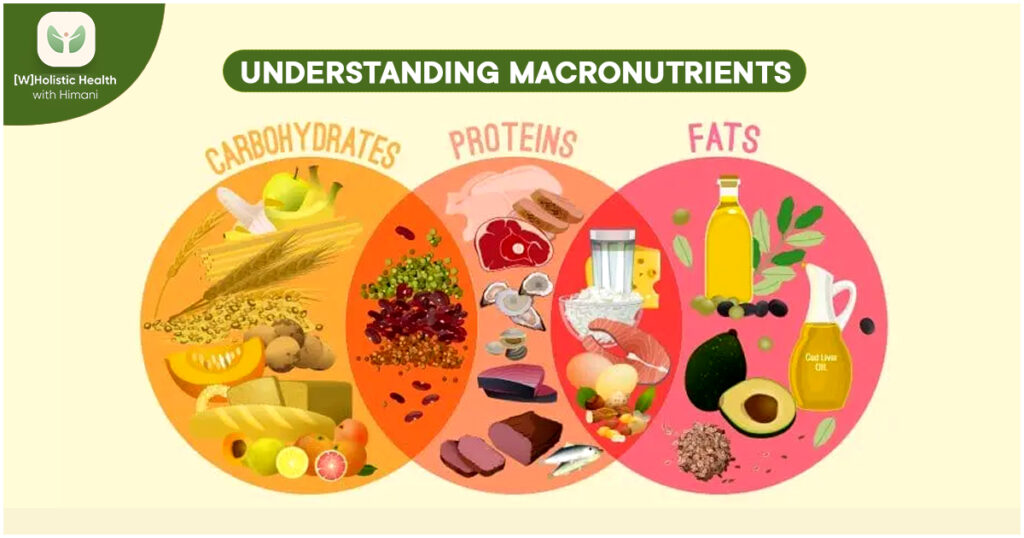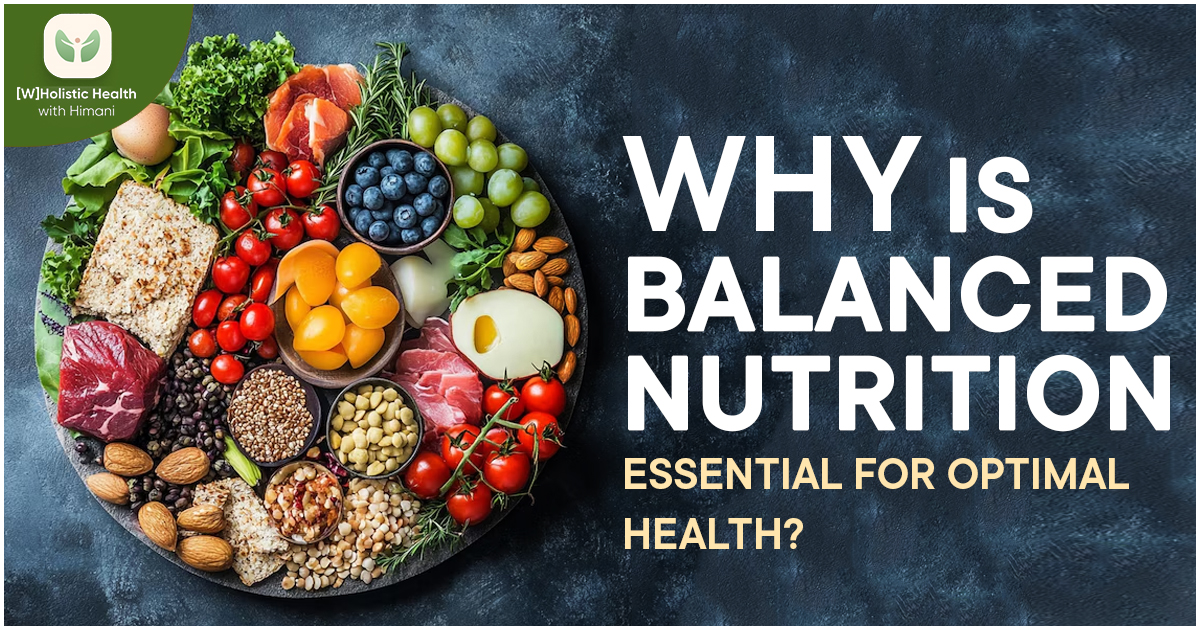In the complex landscape of human health, balanced nutrition is a fundamental pillar supporting every aspect of our well-being. From conception through every stage of life, the nutrients we consume are crucial in determining our physical health and mental acuity, emotional stability, and overall quality of life. Recent advances in nutritional science have revealed that the relationship between diet and health is far more intricate than previously understood, with far-reaching implications for individual and public health.
Balanced nutrition extends beyond simply counting calories or following the latest diet trends. It encompasses understanding the complex interplay between various nutrients, their roles in the body, and how they work together to support optimal health. Modern research has shown that our nutritional needs are universal in their basic requirements and deeply individual in their specific applications, influenced by genetics and lifestyle choices.
Table of Contents
ToggleWhat Forms the Foundation of Nutritional Science?
Recent studies have transformed our understanding of nutrition’s impact on human health. A groundbreaking 2023 study published in the Journal of Clinical Medicine demonstrated that balanced nutrition could reduce the risk of chronic diseases by up to 47%. This finding builds upon decades of research, including the landmark Framingham Heart Study, which has tracked dietary patterns and health outcomes across multiple generations since 1948.
The World Health Organization now estimates that poor nutrition contributes to approximately 11 million deaths annually, making it one of the leading preventable causes of mortality worldwide. This startling statistic underscores the importance of daily understanding and implementing proper nutritional practices.
How Do Macronutrients Support Our Health?

What Is the Role of Proteins in Our Body?
Proteins are the building blocks of life, performing countless essential functions within the human body. These complex molecules are composed of amino acids arranged in specific sequences that determine their function. While we often think of proteins primarily in terms of muscle building, their role extends far beyond this single aspect.
Recent Institute of Nutritional Sciences research has revealed that protein timing and quality may be as important as quantity. The body’s protein needs vary throughout the day and are influenced by physical activity, age, and overall health status. For instance, older adults require higher protein intake to maintain muscle mass due to age-related changes in protein metabolism, a phenomenon known as anabolic resistance.
Read More: High Protein Soya Bean Kebab: A Nutritious Powerhouse
The protein debate between animal and plant sources has evolved significantly in recent years. While animal proteins traditionally held the spotlight for their complete amino acid profiles, innovative research has shown that properly combined plant proteins can be equally effective. A 2023 study in the Journal of Nutrition demonstrated that individuals following a well-planned plant-based diet could meet all their protein requirements while potentially gaining additional health benefits from the fiber, antioxidants, and other beneficial compounds in plant foods.
How Do Carbohydrates Function Beyond Providing Energy?
Carbohydrates are the most misunderstood macronutrients. Often vilified in popular media, these essential nutrients are crucial to human health and performance. The key lies in understanding the different types of carbohydrates and their varying effects on the body.
Complex carbohydrates in whole grains, legumes, and vegetables provide energy, essential fiber, vitamins, minerals, and beneficial plant compounds. The fiber content in these foods has emerged as a crucial factor in health maintenance. Recent research has revealed that dietary fiber feeds beneficial gut bacteria, producing short-chain fatty acids that play vital roles in everything from immune function to mental health.
The glycemic index (GI) and glycemic load (GL) concepts have revolutionized our understanding of how different carbohydrates affect blood sugar levels. However, new research suggests that individual carbohydrate responses can vary significantly based on genetics, gut microbiome composition, and overall diet quality. A groundbreaking 2022 study in Cell demonstrated that identical foods could produce markedly different glycemic responses in other individuals, highlighting the need for personalized nutrition approaches.
Why Are Fats Essential for Our Health?
The scientific understanding of dietary fats has dramatically transformed in recent decades. Once universally feared, certain fats are recognized as essential for optimal health. The key lies in distinguishing between different types of fats and understanding their roles in the body.
Omega-3 fatty acids, particularly EPA and DHA, have become crucial nutrients for brain health and inflammatory regulation. The traditional Mediterranean diet, rich in monounsaturated fats from olive oil and nuts, consistently benefits cardiovascular health, cognitive function, and longevity. A 2023 meta-analysis in the British Medical Journal found that higher consumption of monounsaturated and polyunsaturated fats was associated with a 27% reduction in cardiovascular disease risk.
However, the ratio between different types of fats has proven to be just as important as the total amount consumed. Modern Western diets often contain an omega-6 to omega-3 ratio of 15:1 or higher, while research suggests that a ratio closer to 4:1 is optimal for health. This imbalance may contribute to chronic inflammation and various health problems.
What Makes Micronutrients Critical for Health?
How Do Vitamins Act as Essential Catalysts for Health?
Vitamins play indispensable roles in hundreds of biological processes, yet their importance is often overlooked in favor of macronutrient considerations. Recent research has revealed increasingly complex roles for these essential nutrients beyond their traditionally understood functions.
Vitamin D, once primarily associated with bone health, has emerged as a crucial factor in immune function, mental health, and chronic disease prevention. A comprehensive 2023 study involving over 500,000 participants found that optimal vitamin D levels were associated with a 40% reduction in all-cause mortality. However, achieving optimal levels has proven challenging, with an estimated 42% of adults deficient in this crucial nutrient.
The B-vitamin complex has shown surprising connections to mental health and cognitive function. New research has revealed that folate and B12 deficiencies may contribute to depression and anxiety, while optimal B-vitamin status appears to protect against cognitive decline with aging.
Why Are Minerals Fundamental to Physical Function?
Minerals are essential cofactors for countless enzymatic reactions and play crucial roles in maintaining physical structure and function. Recent research has highlighted the intricate relationships between minerals and their impact on health outcomes.
Magnesium, often called the “master mineral,” is crucial in over 300 enzymatic reactions. Recent studies have shown that optimal magnesium status may help prevent or manage conditions ranging from diabetes to depression. However, modern agricultural practices and food processing have led to declining magnesium content in many foods, making adequate intake increasingly challenging.
Iron is the most common nutrient deficiency worldwide, affecting approximately 2 billion people. New research has revealed that iron status affects physical energy levels, cognitive function, and emotional well-being. The challenge lies in optimizing iron absorption while avoiding excess intake, which can promote oxidative stress.
Macronutrients: The Building Blocks of Health
How Do Proteins Support Life?
What Are the Biological Roles of Proteins?
- Structure and repair of tissues
- Enzyme production
- Hormone synthesis
- Immune system function
- Transportation of molecules
What Are the Recommended Protein Intake Levels?
- General population: 0.8-1.0g/kg body weight/day
- Athletes: 1.2-2.0g/kg body weight/day
- Elderly: 1.0-1.2g/kg body weight/day
What Are the Different Protein Sources and Their Quality?
Animal Sources:
- Complete protein profile
- Higher bioavailability
- Rich in B12 and iron
Plant Sources:
- Lower environmental impact
- Higher fiber content
- Rich in antioxidants
How Do Carbohydrates Fuel Life?
What Are the Different Types and Functions of Carbohydrates?
Simple Carbohydrates:
- Quick energy source
- Rapid blood sugar impact
- Limited nutritional value
Complex Carbohydrates:
- Sustained energy release
- Better blood sugar control
- Higher nutrient density
2. The Glycemic Index:
- Low GI foods (<55): Optimal for sustained energy
- Medium GI foods (56-69): Moderate blood sugar impact
- High GI foods (>70): Rapid blood sugar elevation
3. Fiber Types and Benefits:
Soluble Fiber:
- Cholesterol reduction
- Blood sugar regulation
- Gut bacteria support
Insoluble Fiber:
- Digestive Health
- Weight management
- Colon cancer prevention
Fats: Essential Nutrients
1. Types of Fats:
Saturated Fats:
- Limit to <10% of calories
- Found in animal products
- Impact on cardiovascular health
Monounsaturated Fats:
- Heart-healthy
- Anti-inflammatory properties
- Found in olive oil, avocados
Polyunsaturated Fats:
- Essential omega-3 and omega-6
- Brain health support
- Cellular function
2. Fat Ratios:
- Optimal omega-6:omega-3 ratio: 4:1
- Current Western diet ratio: often >15:1
- Impact on inflammation and health
Micronutrients: The Hidden Essentials
Vitamins: Organic Catalysts
1. Water-soluble vitamins:
Vitamin C:
- Immune function
- Collagen synthesis
- Antioxidant properties
- RDA: 65-90mg/day
B-Complex Vitamins:
- Energy metabolism
- Brain function
- Blood cell formation
- Varying RDAs
2. Fat-Soluble Vitamins:
Vitamin D:
- Bone health
- Immune function
- Mental health
- RDA: 600-800 IU/day
Vitamin E:
- Antioxidant protection
- Skin health
- Immune function
- RDA: 15mg/day
Minerals: Structural and Functional Support
1. Major Minerals:
Calcium:
- Bone health
- Muscle function
- Blood clotting
- RDA: 1000-1200mg/day
Magnesium:
- Energy production
- Muscle function
- Nerve transmission
- RDA: 310-420mg/day
2. Trace Minerals:
Iron:
- Oxygen transport
- Energy production
- Immune function
- RDA: 8-18mg/day
Zinc:
- Immune function
- Wound healing
- Protein synthesis
- RDA: 8-11mg/day
Creating a Balanced Diet: Practical Application
Meal Planning Strategies
1. The Plate Method:
- 50% vegetables and fruits
- 25% whole grains
- 25% protein sources
- Healthy fats incorporated
2. Timing Considerations:
- Meal frequency
- Pre/post-exercise nutrition
- Circadian rhythm alignment
Special Dietary Considerations
1. Plant-Based Diets:
- Protein combinations
- B12 supplementation
- Iron absorption optimization
2. Athletic Nutrition:
- Increased protein needs
- Carbohydrate timing
- Hydration strategies
3. Age-Related Requirements:
- Childhood nutrition
- Adult maintenance
- Elderly Nutrition
Nutritional Challenges and Solutions
Common Nutritional Deficiencies
1. Vitamin D:
- Prevalence: 42% of adults
- Risk factors
- Prevention strategies
2. Iron:
- Impact on women
- Vegetarian considerations
- Absorption enhancement
Dietary Challenges
1. Modern Food Environment:
- Processing impact
- Nutrient depletion
- Environmental factors
2. Lifestyle Factors:
- Time constraints
- Social influences
- Economic considerations
Supplementation: When and How
A. Evidence-Based Supplementation
1. Essential Supplements:
- Vitamin D for limited sun exposure
- B12 for vegetarians/vegans
- Iron for menstruating women
2. Conditional Supplements:
- Athletic performance
- Pregnancy requirements
- Age-related needs
B. Safety and Quality
1. Supplement Regulation:
- Quality standards
- Third-party testing
- Label accuracy
2. Interaction Considerations:
- Drug-nutrient interactions
- Timing of supplementation
- Upper limit guidelines
Practical Application of Nutritional Science
Creating a Balanced Diet
Translating nutritional science into practical dietary choices requires understanding the science and the art of food selection and preparation. The modern food environment presents unique challenges, with processed foods often displacing more nutritious options.
Recent research supports the concept of “food synergy,” where the benefits of whole foods exceed the sum of their nutrients. For example, consuming whole fruits provides greater health benefits than taking equivalent amounts of isolated vitamins and minerals, likely due to the complex interactions between various compounds in whole foods.
Meal Timing and Frequency
Nutrient intake timing has emerged as a crucial factor in health outcomes. Chronobiology research has revealed that our bodies process nutrients differently at different times of day, influenced by circadian rhythms. This understanding has led to the development of chrono-nutrition, which considers what we eat and when we eat it.
Special Considerations for Different Life Stages
Nutritional needs vary significantly across the lifespan and between different population groups. Pregnancy and early childhood represent critical periods where proper nutrition can have lifelong impacts. Recent epigenetic research has shown that maternal nutrition can influence gene expression in offspring, potentially affecting future health outcomes.
The Future of Nutrition in Diet
Personalized Nutrition
Advances in genetic testing and artificial intelligence are paving the way for increasingly personalized nutrition recommendations. The emerging field of nutrigenomics studies how individual genetic variations affect nutrient requirements and responses to different dietary patterns.
Environmental Considerations
The relationship between nutrition and environmental sustainability has become increasingly important. Research shows that dietary choices have significant environmental impacts, from water usage to greenhouse gas emissions. This has increased interest in sustainable nutrition practices that benefit human health and environmental preservation.
Author Final Words
Balanced nutrition represents a complex interplay between various nutrients, individual needs, and environmental factors. Understanding these relationships allows for more effective dietary choices supporting individual and planetary health. As research unveils new aspects of nutritional science, our approach to diet and health must evolve accordingly, always grounded in scientific evidence while remaining practical and accessible.
The future of nutrition lies in combining traditional wisdom with modern scientific understanding, creating personalized approaches that account for individual variations while respecting universal principles of healthy eating. Maintaining this balance can achieve optimal health outcomes for individuals and populations.
This comprehensive understanding of nutrition provides a foundation for making informed dietary choices supporting health and well-being. As our knowledge expands, the importance of balanced nutrition in preventing disease and promoting optimal health becomes increasingly clear.

I’m Himani, a Singapore-based health coach certified by IIN. I help clients create personalized nutrition and lifestyle plans that lead to lasting health goals. By focusing on individual needs, I provide actionable steps to support your journey to optimal well-being











